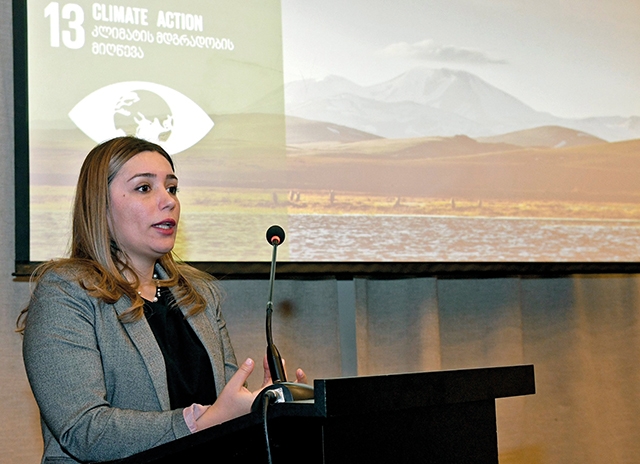Energy, Agriculture, Industry & Waste the Main Sources of Greenhouse Gas Emissions in Georgia
Energy tops the list of polluters in Georgia, accounting for more than half of the national greenhouse gas (GHG) emissions. Agriculture, industry and waste hold the next three positions on the list with their contributions having increased gradually in recent years. Following the collapse of Soviet-legacy industries, Georgia currently produces three times less greenhouse gas emissions than in 1990. However, a slight increase has been observed in the last decade.
These findings are included in Georgia’s Second Biennial Update Report to the UN Framework Convention on Climate Change (UNFCCC), prepared with the assistance from the United Nations Development Program (UNDP) and the Global Environment Facility (GEF) and unveiled by the Government of Georgia on December 18.
“Reporting to the UN Convention on Climate Change is an important national exercise,” said Deputy Minister of Environmental Protection and Agriculture, Nino Tandilashvili. “Georgia’s recent report reveals the trends in domestic emissions over a 25-year period, identifies the needs and gaps, and helps the country move towards a climate-resilient society.”
“2019 is a crucial year for the implementation of the Paris Agreement, when all countries are updating their commitments to reduce greenhouse gas emissions,” said UNDP Deputy Head Anna Chernyshova. “The UNDP will continue supporting Georgia in its efforts to set more ambitious goals and make further steps to a greener and more sustainable economy.”
Georgia has been submitting biennial reports to the UN Framework Convention on Climate Change (UNFCCC) since 2016, aiming to capture the major national trends in GHG emissions and describe the mitigation measures undertaken in different sectors of economy.
The recent Report developed in 2017-2019 includes an updated GHGs Inventory and information on the implemented, ongoing and planned mitigation policies and measures. It also describes a national framework for measurement, reporting and verification (MRV) to track GHG emissions, climate finance and the impact of mitigation actions.
Among the challenges faced by Georgia in climate action, the Report points out fragmented legislation and institutional framework, insufficient domestic finance and lack of quality research and climate-friendly technologies. As a solution, it suggests establishing of a Climate Change Committee to co-ordinate the climate-related activities.
Georgia’s Second Biennial Update Report is a joint effort of a wide range of stakeholders: government agencies, civil society, academic and educational institutions and international partners. Submitted in June 2019, the Report received positive feedback from the UNFCCC Secretariat. The Report is available on the UNDP website.
Image source: The report was presented at Radisson Blu Iveria Hotel Tbilisi on December 18. Photo by Vladimir Valishvili/UNDP












